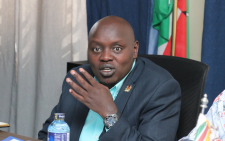Daring death: Why top Kenyans want to control final send-off
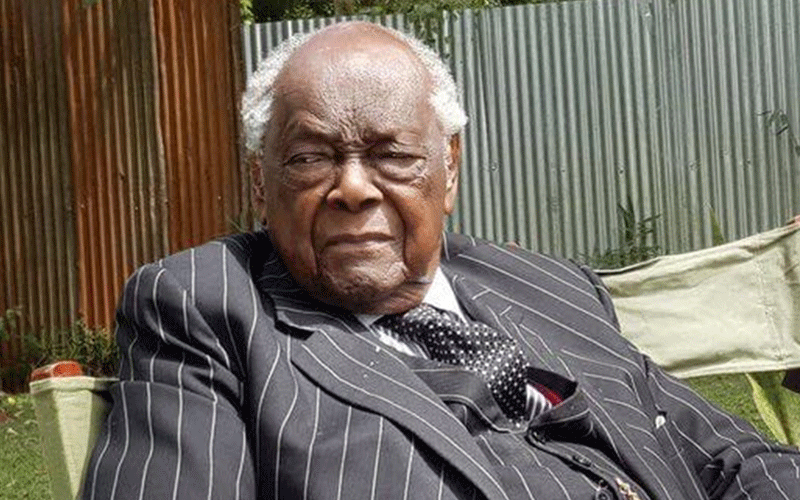
“It pains me to admit it, but apparently, I have passed away. Everyone told me it would happen one day but that’s simply not something I wanted to hear, much less experience. For once, I didn’t get things my way this time round!”
Those were the words of Nairobi lawyer Evans Monari to family and friends as the casket bearing his remains lay in front of them.
“The memories I’m taking with me now are so precious and have more value than all the gold and silver in my jewellery box,” added the lawyer.
Monari, who died in October last year, had written his own obituary which was read to mourners by Solicitor General Ken Ogeto.
In the eulogy, the lawyer recounted his childhood, education, triumphs in his legal career, family life and his battle with multiple ailments that eventually claimed his life.
Within the legal fraternity, Monari was known for his abrasive court arguments, intellect, generosity and love for the finer things in life.
“I’ll leave you with this… please don’t cry because I’m gone; instead be happy that I was here.
(Or maybe you can cry a little bit. After all, I have passed away). Today, I am happy and I am dancing. Probably playing a saxophone, too.
Heated debate
“Sir Winston Churchill once said: ‘We make a living by what we get; we make a life by what we give’. If that is true, then I made a great life.
“May the perpetual light shine upon you Evans. Rest in Eternal Peace,” Monari signed off.
Walking against conventional practices, Monari was among an emerging crop of prominent individuals decidedly keen to have a final word on their last moments in life.
While some give elaborate conditions on how their burial ceremonies should be conducted, others hold meetings to plan their own funerals. These include identifying and inviting desired speakers, pallbearers, songs to be played and even dictating the funeral programme.
This past weekend’s deaths and subsequent quick cremation of former Attorney General Charles Njonjo and conservationist Richard Leakey have been the subject of heated debate on social media.
Njonjo, who died on Sunday morning aged 101, had given clear instructions on how his body should be disposed of after his death.
He had directed that he be cremated immediately, to avoid any elaborate funeral rites and related fanfare.
That is exactly what the family did on Sunday. Njonjo was pronounced dead at 5am and had been cremated by 10am in a low-key event at the Kariokor Hindu crematorium attended only by his immediate family members and close friends.
“It was his wish and directions that if anything happened, he had to be cremated immediately. He even joked that if it happened in the morning, he should be cremated by midday, so it is as if his wishes were granted. He went very peacefully, that is what we gathered from the family,” said veteran lawyer Paul Muite who attended the ceremony.
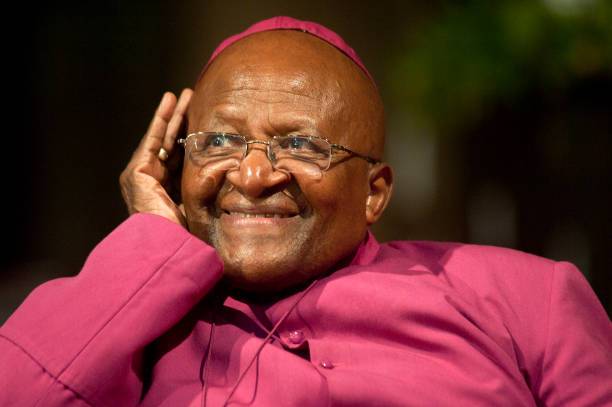
A day earlier, South African anti-apartheid hero Archbishop Desmond Tutu had been buried in a modest ceremony in Cape Town, according to his wishes.
Tutu, who died at 90, had insisted there should be no “lavish spending” on his funeral. He wanted “the cheapest available coffin” and a simple service.
Tutu had requested that the only flowers in the cathedral should be a “bouquet of carnations from his family”.
The bishop was aquamated, – a water-based process that is considered environmentally friendly and an alternative to cremation.
His remains were carried in a plain pine coffin on Thursday and Friday as it lay in state at the Anglican Cathedral in Cape Town.
Like Njonjo, Leakey was on Monday buried at a private ceremony.
In a statement, his family said the renowned conservationist had been buried on Monday afternoon on a hill on the Rift Valley, according to his wishes.
“In keeping with Richard’s wishes, we, this afternoon, interred his body at a place of his choosing, on his favourite ridge overlooking the majestic Rift Valley that he so loved,” said Samira Leakey, a member of the family.
In 2019, former Safaricom chief executive Bob Collymore largely planned his funeral.
Realising that his days on earth were fast diminishing after a long battle with cancer, Collymore called his close friends – including President Uhuru Kenyatta – to say his goodbye.
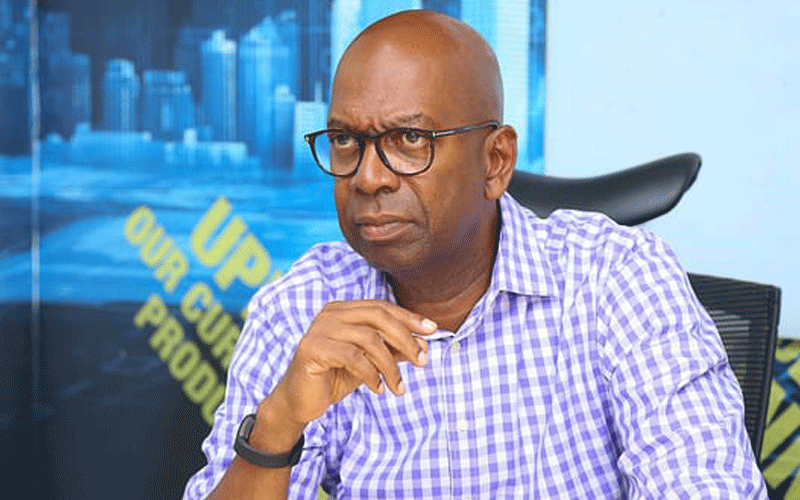
He even hosted a group of his social friends to what was considered a farewell dinner.
Despite his vast wealth and high place in society, Collymore, who died in July 2019, is said to have rejected plans by his friends to grant him a grand burial ceremony, instead opting for a simple cremation.
“He specified that he wanted his body cremated within 24 hours and at Kariokor centre and sternly rejected any plans for a grand ceremony for his burial,” said a close friend.
Unwelcome
According to the friend, Collymore had made it clear he did not want political speeches at his memorial service.
Like Leakey, Murang’a tycoon Joe Kibe, who died on December 2 last year, was buried 74 hours later at a private ceremony, catching many of his friends and relatives unawares.
“As per Joe Kibe’s wishes, there will be a private family interment on a date that we reserve for ourselves.
However, his memorial service will be held at the Consolata Shrine, Westlands, on December 15, 2021, starting 10am,” a statement from the family said.
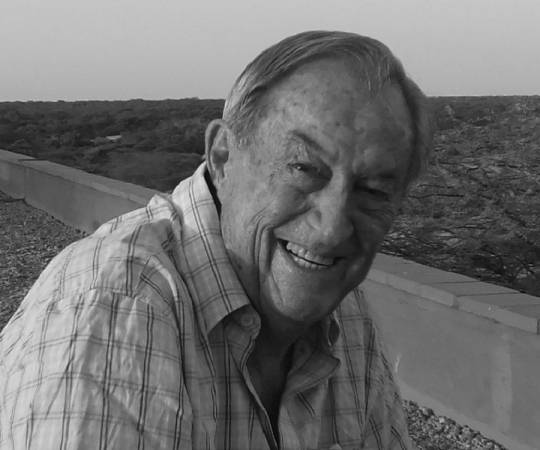
Across the oceans, senior Republican politician John McCain was not only determined to have the final word on his legacy but also take his disdain for then US President Donald Trump to the grave.
With the reality dawning that brain cancer was fast taking a toll on him, McCain identified persons who would speak at his burial.
In April 2019, he approached former US presidents Barack Obama, who defeated him in the 2008 election and George W. Bush. They accepted.
Expert’s view
He then made it clear that Trump was unwelcome at the burial. He identified some of his old friends to be pallbearers – among them current US President Joe Biden.
Prof Felix Kioli, a sociologist, links the emerging trend to what he describes as “post-modernism” and a desire by individuals not to burden others with personal responsibilities.
“This is an era of diversity. In post-modernism people are determined to free themselves from the traditional web of thinking.
It gives individuals autonomy on decision-making on personal matters,” said Prof Kioli, the Dean of the School of Education at the South Eastern Kenya University.
The Reverend David Oginde, the former presiding bishop of Christ is the Answer Ministries (Citam), however, warns against cremation, saying it is unChristian.
“The human body is the temple of the Holy Spirit and must be thus respected. For Christians, therefore, any act that deliberately defiles the body – like cremation – is considered utterly abhorrent.
Indeed, there are no biblical records of the burning of the body, other than under the judgement of God.
Furthermore, because Jesus was buried, most churches require burial as part of following Christ’s example,” says the clergyman.
With burial spaces diminishing and prominent people in society considered role models embracing cremation, it would seem the church has a big task ahead to discourage more Kenyans from following the trend.










